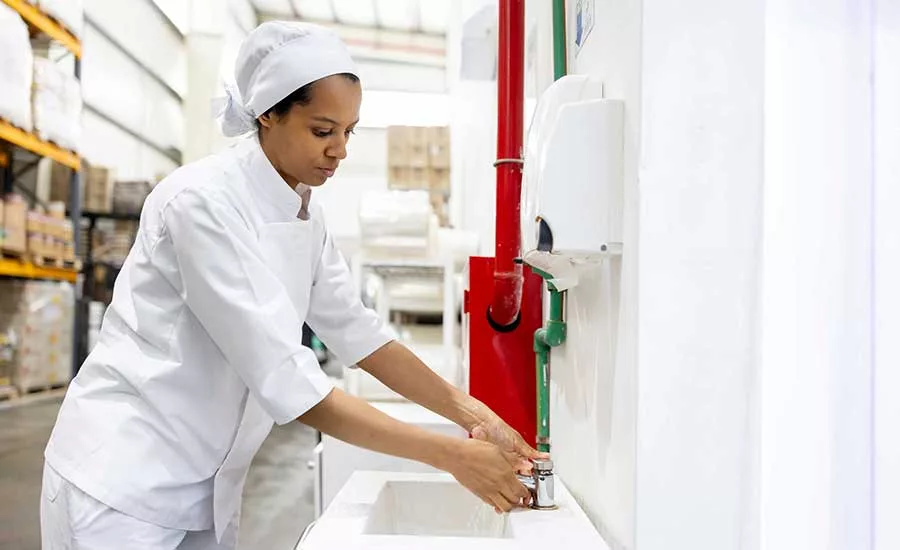Antibiotic-Resistant Bacteria Found in Half of Chicken Meat from Europe’s Biggest Grocery Chain

Image credit: azerbaijan_stockers via Freepik
Approximately half of raw chicken sold at Lidl stores across Europe is contaminated with antibiotic-resistant foodborne pathogens, according to the findings of a recent, independently commissioned sampling and testing project. Lidl is the largest grocery chain in Europe, and is therefore one of the largest meat distributors on the continent.
Between December 2023 and March 2024, a total of 142 packages of Lidl brand fresh chicken meat were purchased from 22 Lidl stores in five countries: Italy (24 samples), Germany (24 samples), the UK (40 samples), Poland (30 samples), and Spain (24 samples). Different cuts of meat representing the most commonly consumed chicken parts were selected (wing, thigh, drumstick, and breast). Immediately after purchase, the chicken samples were packaged in refrigerator bags and were kept cold during transport to the laboratory. The cold chain was meticulously monitored to ensure appropriate temperatures were constant.
The laboratory analyzed the samples for the presence of important pathogens commonly associated with foodborne illness: Salmonella, Campylobacter jejuni, Listeria monocytogenes, Escherichia coli, and Enterococci. Laboratory technicians also analyzed the samples for the presence of antibiotic-resistant bacteria; in particular, methicillin-resistant Staphylococcus aureus (MRSA), and any other bacteria that produce extended-spectrum beta-lactamases (ESBL), an indicator of antimicrobial resistance (AMR).
Out of the total number of analyzed chicken products sourced from all five countries, the analysis found:
- Antibiotic-resistant bacteria in 50 percent of samples
- MRSA in 23 percent of samples
- E. coli in 57 percent of samples
- Salmonella in 9.2 percent of samples
- L. monocytogenes in 33.1 percent of samples
- C. jejuni in 28.2 percent of samples
- Enterococci in 47.9 percent of samples.
Only two samples (1.4 percent) had no positives for any of the bacteria for which the laboratory was looking. Interestingly, with respect to Salmonella, nearly all samples that tested positive for the pathogen were Italian—11 of the 13 samples that tested positive for Salmonella across all five countries came from Italian Lidl stores. The other two Salmonella-positive samples were sourced from Poland. On the other hand, Campylobacter was not detected in any Italian or UK samples, but was detected in 50 percent of German samples, 27 percent of Polish samples, and 38 percent of Spanish samples. Additionally, zero MRSA was detected in Italian or German samples, but was present in 45 percent of UK samples, 30 percent of Polish samples, and 25 percent of Spanish samples.
Regarding AMR, 50 percent of samples contained some type of bacteria that exhibited resistance. More specifically, ESBL-producing bacteria was found in 35.2 percent of samples, and MRSA was detected in 23 percent of samples. ESBL-producing bacteria identified by the laboratory included Klebsiella pneumoniae, E. coli, and Serratia fonticola. However, due to cost, complete bacterial typing was not conducted as part of the analysis, and therefore, it is possible that other types of ESBL-producing bacteria were present. In Italy alone, 33 percent (eight samples) of the 24 samples taken from domestic Lidl stores contained multidrug-resistant bacteria, meaning that the bacteria was resistant to three or more of the four classes of antibiotics tested.
Overall, samples from Spain had the highest rate of positives for resistant bacteria (71 percent), followed by the UK (57.5 percent), Italy (46 percent), Poland (40 percent), and Germany (33 percent).
Context for the Report and Lidl's Response
Looking for quick answers on food safety topics?
Try Ask FSM, our new smart AI search tool.
Ask FSM →
The report was commissioned by animal welfare advocacy groups from the five countries. Led by Essere Animali in Italy, collaborators included Fondazione Albert Schweitzer in Germany, Observatorio de Bienestar Animal in Spain, Open Cages in the UK, and Otwarte Klatki/Fundacja Alberta Schweitzera in Poland.
In the report, Essere Animali asserts that one of the main causes behind the global rise of AMR is irresponsible antimicrobial use on farms; especially intensive, large-scale operations where chickens’ living conditions are poor, causing the animals to become sick more frequently than they do on farms with better husbandry. Moreover, subpar husbandry and dense living conditions housing large chicken populations can increase the rate at which pathogens spread, says Essere Animali.
The reason Essere Animali launched an investigation into Lidl chicken meat—aside from Lidl being the largest supermarket chain in Europe—was due to the grocer’s recalcitrance to sign the EU Better Chicken Commitment, which is the “leading set of standards for broiler welfare driving the food industry towards higher welfare practices.” It is a science-based, six-point chicken welfare policy that addresses issues related to breeding for fast-growth and high-yield, housing, stocking density, and slaughter. Some of the more than 200 companies that have signed the commitment include TGI Friday’s, the Compass Group, Kraft Heinz, Marks and Spencer, Nestle, KFC, Unilever, Ikea, Carrefour, Cortilia, and Eataly.
Lidl argues that the Better Chicken Commitment’s criteria are not currently compatible with Italian infrastructure and capabilities as they currently exist. In response to Essere Animali’s report, Lidl stated that it has been committed for years to the continuous development of animal welfare standards, and that it actively collaborates with suppliers and has discussions with non-governmental organizations to promote sustainable practices and guarantee that fresh chicken meat comes from farms with adequate standards.








